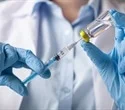According to new research, testing for genetic abnormalities in urine can identify bladder cancer years before the disease manifests clinical symptoms.
The most prevalent type of bladder cancer could be predicted by mutations in 10 different genes up to 12 years before the diagnosis, according to a study by scientists from France, Iran, and the United States.
The results are presented today in Milan at the annual Congress of the European Association of Urology (EAU).
With over 200,000 occurrences in the European Union, bladder cancer is not a rare condition; it is one of the top 10 most prevalent malignancies in the UK.
every year. Only around half of people with advanced illness who are diagnosed will live longer.
The study was based on the UroAmp test, a routine urine test created by Convergent Genomics, an Oregon Health Science University spin-off company, which detects mutations in 60 genes. The research team focused the new test on mutations inside just ten genes after drawing on earlier studies to pinpoint genetic changes related to bladder cancer.
Collaborating with colleagues from the Tehran University of Medical Sciences in Iran, they evaluated the prospective new test using samples from the Golestan Cohort Study, which has tracked the health of more than 50,000 participants over ten years, all of whom supplied urine samples during recruitment.
The researchers was able to analyse urine samples from 40 study participants who got bladder cancer throughout that decadeOf the 29 participants who’d developed bladder cancer within the Golestan cohort, the test was able to accurately predict future bladder cancer in 19 (66%) of them, even though urine samples had been taken up to 12 years before clinical diagnosis. Fourteen of these participants were diagnosed with bladder cancer within seven years of urine collection, and the test was able to predict cancer in 12 (86%) of these.
The test was accurately negative in 94 of the 98 participants (96%) who would not develop cancer in the future. Among those where the test was negative but who did eventually develop bladder cancer, no cancer was diagnosed until at least six years after the urine collection.





